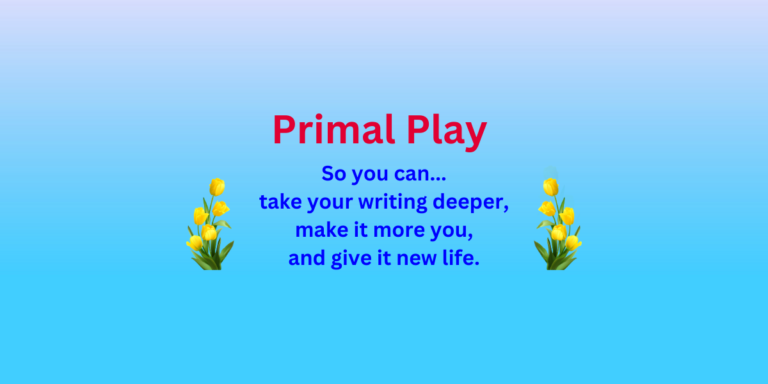7.1 Magic - using words to say more than words can say
I used to be obsessed with subtext because…
“Sub” means under.
Subtext, then, should mean under the text, or deeper than the text. I wanted more depth in my writing, so I decided subtext was the place to look.
I read books, I watched videos, and I noticed that all the writing mavens repeated each other’s same few simple points, like this definition…
Subtext is when people don’t say what they mean.
Sometimes a character is hiding what she’s feeling on purpose because she doesn’t want to be vulnerable. Sometimes a character doesn’t know what she’s feeling so she has no choice but to speak indirectly.
Which means…
Subtext is tangled, tangential, diffuse, riddling, and tricky.
Let me be clear, I’m a fan of subtext when I come across it in movies or TV shows. I find it endlessly fascinating and entertaining. The indirection and misdirection of subtext cause problems in relationships generating lots of conflict and drama. Which of course is really good for screenwriting…
But not so good in real life.
And real life was my first concern. I wanted to be able to communicate hard truths in a way that was…
Direct and sincere and nurturing.
No tricks.
So it made me mad that “subtext” had been reduced to a narrow technical definition, so much less than what I initially thought it might mean, and so much less than what I wanted it to mean.
But I’m now over that. I’m happy to let the mavens have their restricted version of subtext, because I’ve found a word I like so much better.
My very favorite thing about writing is…
When I get to use words to say more than words can say.
Which might sound like a paradox, but it’s not.
Long before we developed language, we humans experienced life. We experienced our own feelings and the responses of others and the world around us.
And once we learned how to speak to each other in sentences, we were able to describe and define some parts of our experience in great detail. But not all of it, because….
Some parts remained elusive.
We couldn’t sum them up or pin them down.
It’s still like that, language still exists in the larger context of experience.
And what I love is how…
We can use language to take us deeper into our experience.
Without diminishing experience, without being control freaks, but rather taking delight in what we feel in the part of our lives that goes beyond our words.
When we’re able to use words to go deeper than words can go, I now call that…
Magic.
Not mystical magic, or anything supernatural, but a down–to–earth human magic we work on ourselves with our verbal abilities.
Which I sometimes also call a bit more grandly…
The transcendent function of language.
To get a better feel for this, let me show you some of my favorite quotes from Flannery O’Connor, which I’ve copied over from her book Mystery and Manners, especially the sections on short stories.
For example she says…
“Some people have the notion that you read the story and then climb out of it into the meaning, but for the fiction writer himself, the whole story is the meaning, because it is an experience, not an abstraction.”
I remember in high school English our teacher always demanded that we extract the theme of the story, as if once we did that we’d have no further need for the story.
Which, looking back, strikes me as deeply disrespectful and reductionist and just plain sad. And maybe a bit arrogant, like maybe our two–minute effort made us smarter than the author who had foolishly spent years developing her craft.
Another Flannery quote…
“You tell a story because a statement would be inadequate.”
When I think about my favorite short stories, I rebel at the idea of re–writing them into a single, prosaic, pedestrian summary sentence. I don’t want to do that, and I don’t want anyone else to do it. Just leave these stories alone, please.
To attack a story in this way makes me think of a perverse, reverse magician, who poof! takes the magic out of everything he touches.
And another quote…
“A story is a way to say something that can’t be said any other way, and it takes every word of the story to say what the meaning is.”
What a boring world this would be, and how diminished our lives would be, if everything that mattered could be summed up in spare, linear, and plodding prose.
Finally. Flannery says…
“When anybody asks what a story is about, the only proper thing is to tell him to read the story.”
Amen.
I’m not against talking about stories and studying them to understand how they work their magic. I just want us to do that in a way that deepens our appreciation for the magic.
But my favorite way of talking about story magic is just to point you to stories that I find magical. Two of them are:
“Rattlesnake Fire” in Hell’s Bottom, Colorado by Laura Pritchett, and
“Snow Angel” in Sweet Talk by Stephanie Vaughn
Though I recommend all the stories in both those books.
And if you want to check out Mystery and Manners, I’d recommend starting with the two chapters titled…
“The Nature and Aim of Fiction,” and
“Writing Short Stories.”
I mostly write nonfiction, which many think of literal and linear, and therefore subdued and restrained as compared to the adventure you can find in fiction. And you might be asking…
Can there be magic in prose?
My answer is definitely yes, through…
Jump cuts and juxtapositions,
Metaphor and imagery, and
Heartfelt inward reveries.
And whether you write fiction or nonfiction or both, I wish you the joy that comes from practicing…
Deep magical play in your writing.

